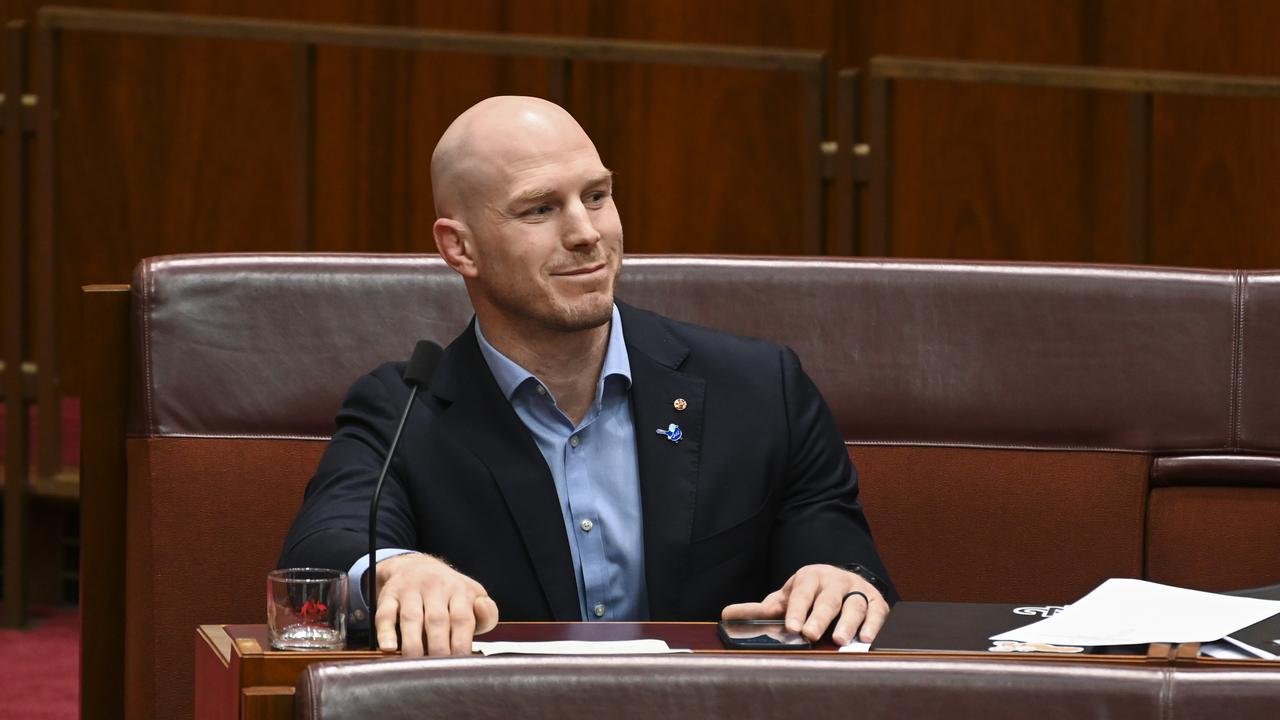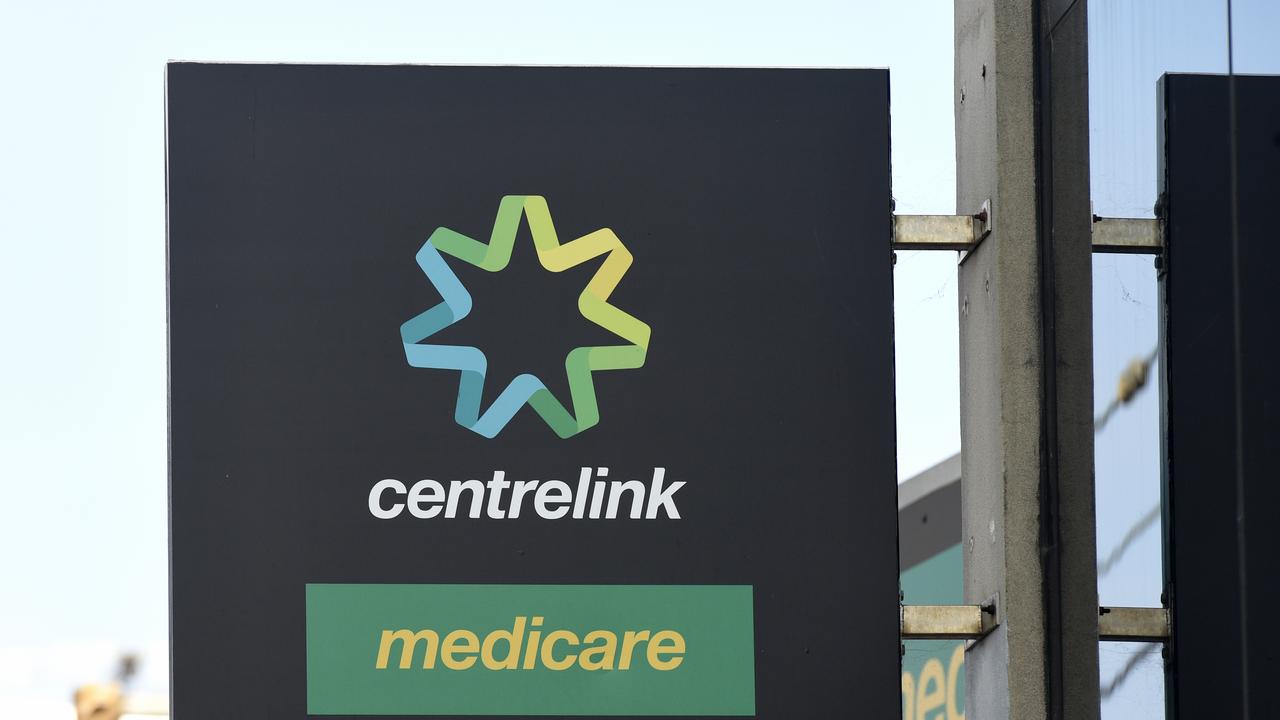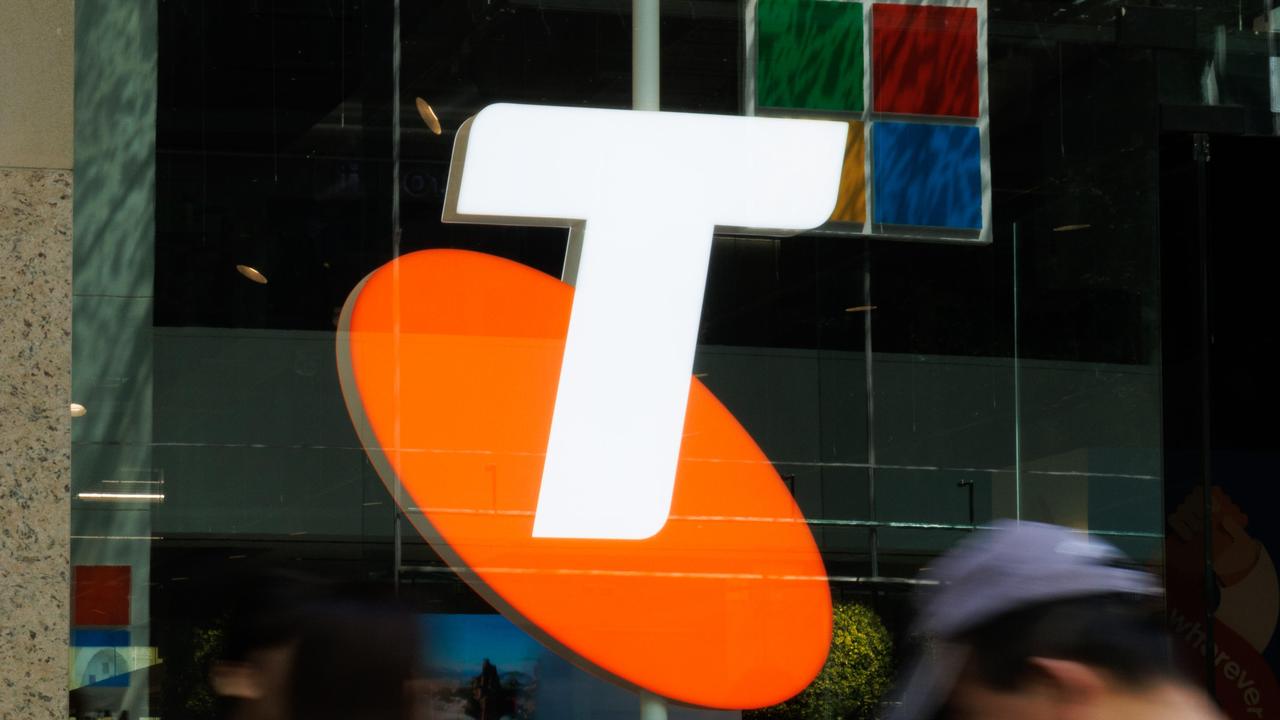Millions could get Centrelink boost under new deal to support Albo’s workplace relations laws
Millions of Australians could have their Centrelink payments raised as the government strikes a deal on its signature workplace relations laws.

Five million Australians on income support could soon see a boost to their Centrelink payments under a deal struck on the government’s contentious workplace relations reform.
The deal with independent senator David Pocock to support the industrial relations bill will establish an “economic inclusion advisory committee” to review welfare payments and provide advice prior to each federal budget.
Senator Pocock, who has been campaigning behind the scenes for an increase to Jobseeker, has hailed the breakthrough as a “game changer” for those living below the poverty line.
“We’ll now have a clearer pathway for raising Jobseeker and single parent payments in the future, by having advice before every budget,” he told ABC News on Monday.

The deal will put pressure on the government to increase the $668.40 Jobseeker fortnightly payment for singles.
But Tasmanian senator Jacqui Lambie, who on Monday reconfirmed she would not support the legislation, questioned why the government needed another review to “hear the same thing”.
“When they say we will look at the rates of Jobseeker, it will come down to the recommendations and whether or not the government wants to pick up the recommendations. I think we've already had, I don’t know, how many inquiries to tell us Jobseeker is way too low,” she told Nine.
“I’m not sure Labor has done this in good faith because Jobseekers, as we know, need a pay rise.”
Prime Minister Anthony Albanese said the committee, which will be appointed by Treasurer Jim Chalmers and Social Services Minister Amanda Rishworth, was in lock-step with what Labor said during the election.

But the government does not need to accept the committee’s recommendations.
Asked if he was concerned it would result in it being becoming a window dressing, Senator Pocock conceded it was a “risk”.
“The thing that we'll have for the first time is a panel of experts, people with lived experience, someone from business, someone from unions, put forward a view saying this is what we think people on Jobseeker should be getting,” he said.
Senator Pocock’s support means the upper house is all but confirmed to pass the legislation during the final parliamentary sitting week of the year.
AI Group chief Innes Willox criticised Senator Pocock for blinking first in a “game of chicken”.
“He did stand before a group of employers last Monday, a week ago, and promised that there would be no trade-off. So employers look at that and they’re pretty disappointed,” he told ABC News on Monday.

Under the deal, the threshold for small businesses that could be excluded from multi-employer bargaining has increased, from one that employs 15 people to one that employs 20.
It will also be easier for a business with 50 employees or fewer to opt out of multi-employer bargaining by giving them a stronger ability to argue to the Fair Work Commission that they should be excluded.
But business groups remain concerned that despite the changes, the Secure Jobs, Better Pay bill will still result in more strikes.
“I don't think (the concessions agreed to by Senator Pocock) addresses the concerns we have. This is fundamentally flawed legislation. It's going to impose significant additional complexity on business across the board,” Australian Chamber of Commerce and Industry chief Andrew McKellar said.
Meanwhile, Nationals MP Barnaby Joyce has lashed the government for failing to flag the laws during the election.
“It is a very sneaky approach … You’re doing a different job to what you told the Australia people before,” he told Sunrise.
But Mr Albanese said he made it “quite clear” during the election that he would act to “get wages moving”.
“I do notice that the employer organisations I’ve heard comment in criticism of this legislation seems to be saying on the one hand, now it won’t get wages moving. And on the other hand, it’ll get wages moving in a way that’s too fast,” he told ABC Radio Melbourne.
“Well, they can’t have it both ways. I think it gets the balance right.”



